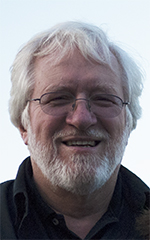DEADLY RIVER
When cholera arrived unexpectedly in Haiti in October 2010, a great mystery unfolded as disease and death decimated the population. Deadly River (Cornell University Press/ILR Press, 2016), and this supplement tell the story of cholera in Haiti, of French epidemiologist Renaud Piarroux’s determined to find its origins so he could help eliminate its reach, and of the political intrigue that has made that effort so difficult.
The story involves political maneuvering by powerful organizations such as the United Nations and its peacekeeping troops in Haiti, as well as by the World Health Organization (WHO) and the U.S. Centers for Disease Control (CDC).
The book explores a quest for scientific truth and dissects a scientific disagreement involving world-renowned cholera experts, embroiled in the political turmoil of a poverty-stricken country. More than that, it raises issues about how wealthy nations and international institutions respond when their interests clash with the needs of the world’s most vulnerable people.
The story poses big social questions and offers insight not only into how to eliminate cholera in Haiti, but also how nations, humanitarian agencies, and international organizations such as the UN, WHO and CDC deal with catastrophic infectious disease epidemics.
This supplement, organized according to Deadly River’s chapters, presents maps, figures, photos and documents referred to in the book. The three dropdown menus provide links to 409 slides in the various chapters and epilogues, while the PDF menu includes original maps, photos and documents described in 55 of the slides.
